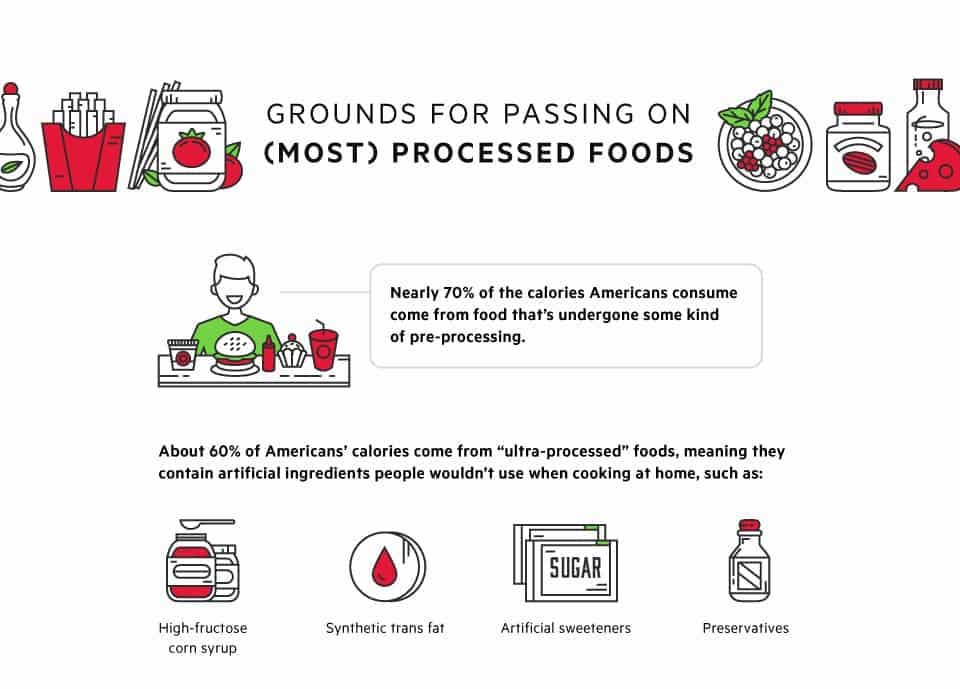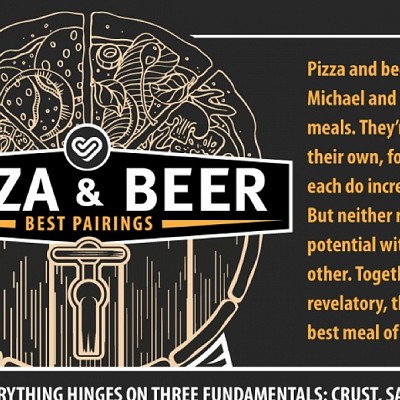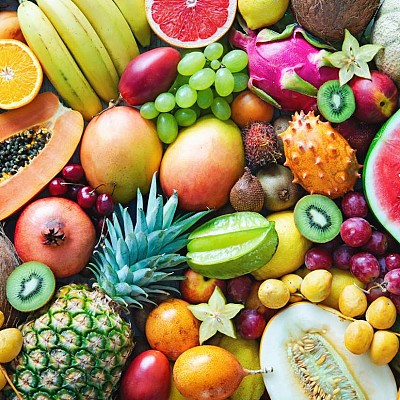Looking to score a promotion or impress a client? It may be time to clean up your meals, especially if your idea of a power breakfast is a doughnut and coffee. People who rarely eat fruits, vegetables, and other healthy foods are less productive at work, according to research conducted at Brigham Young University.
Eating healthy doesn’t have to be complicated. You don’t need to read nutrition textbooks or jump into the latest diet trend. In fact, research suggests formal diets lead to future weight gain and aren’t beneficial for health. What works better? Mindfulness and clean eating or "a diet of minimally processed foods close to nature, predominantly plants," which according to Yale researchers David Katz and Stephanie Miller is "decisively associated with health promotion and disease prevention."
This approach to eating is often called clean eating. It’s not only the key to vibrant health, it also boosts brain power, allowing for more focus and productivity at work. Here’s what clean eating doesn’t entail: counting calories, cutting out food groups, or consuming food-like products. Clean eating is not actually a diet, but an approach to eating that emphasizes consuming real food made from minimally-processed ingredients and reconnecting to your body’s natural cues in order to decide when and how much to eat. It’s the way people ate throughout nearly all of history, but it’s an increasingly rare way to eat today.
Keep reading to learn how processed food can be a detriment to your work life, the simple tenets of clean eating, and how healthy, whole foods may help you get a leg up on the job.

During the mid-twentieth century, food preparation largely moved from kitchens to factories and with that came additives and more processing. Today nearly 70% of the calories Americans consume comes from food that’s undergone some kind of pre-processing. About 60% of Americans’ calories come from “ultra-processed” foods, meaning they contain artificial ingredients people wouldn’t use when cooking at home, such as high-fructose corn syrup, synthetic trans fats, and artificial sweeteners and preservatives.
Processed foods often contain few nutrients and are packed with ingredients you may want to avoid, such as added sodium and refined sugar. Sugar lurks in 68% of processed foods, including sweet foods, salty snacks, pasta sauces, salad dressings, and boxed pizzas. Sugar consumption in the U.S. is up 30% from 40 years ago, and processed food accounts for about 90% of the added sugar people eat today. Likely because of the increased consumption of sugar, rates of obesity and diabetes in the U.S. have skyrocketed. Two-thirds of adults are overweight or obese, and more than 9% are estimated to have type 2 diabetes. Other chronic diseases, including coronary heart disease, hypertension, epithelial cell cancers, autoimmune disease, and osteoporosis, also become more prevalent when a culture adopts a diet heavy in processed food. With all that said, keep this in mind: Not all processed foods are unhealthy. Frozen fruits and vegetables, dairy products, and nut butters are examples of healthy processed foods.
Trans fats, another common offender found in many processed foods such as chips, cookies, and crackers, can increase the risk for heart attacks, stroke, and type 2 diabetes. One study found consuming foods with trans fats can actually impair memory. And preservatives, which help keep processed foods shelf stable longer, may increase cancer risk. Nitrates, which are found in many processed meats for instance, have been linked to higher incidences of colorectal cancer.
Want to improve your health? Commit to making processed foods a smaller part of your diet, and stick to whole grains, legumes, meat, and fresh vegetables if you want to be more effective at work. Real food is the perfect fuel for the body and the brain, and clean eating boosts energy, makes it easier to focus, and improves memory.
Your Brain on Real Food
When you eat a balanced snack or meal that combines complex carbohydrates, protein, and fat, you provide your cells with a steady stream of glucose as well as vitamins, minerals, and antioxidants, substances that protect the cells from stress.
Folic acid, omega-3 oils, and many other nutrients have been shown to improve cognitive function. Real food is the best way to ingest nutrients. Spinach, greens, and citrus fruit are rich in folic acid. Fish, flax seeds, nuts, and green, leafy vegetables are rich in omega-3 fatty acids. But don’t worry too much about which foods contain which nutrients. Clean eating isn’t about munching on the latest superfoods. It’s about eating a wide variety of whole foods.
The brain consumes about 20% of the calories you burn when you’re at rest. Glucose, a form of sugar, is the substance the body uses to feed every cell, including brain cells. To perform optimally, the brain needs a steady stream of glucose in the blood stream. But clean, minimally processed foods—such as lean meats, fruit, vegetables, and whole grains—provide sustained energy, while a treat from the vending machine typically provides a short burst of energy. Complex carbohydrates, such as whole grains, convert most easily into the glucose we need to stay energized and productive.
Diets that are high in sugar, fat, and omega-6 fatty acids, which are common ingredients in processed food, are associated with reduced cognitive ability. High consumption of sugar and fat is linked to poor cognition and decreased memory. Diets high in omega-6 fatty acids and low in omega-3 fatty acids are associated with an increased risk of cognitive impairment.
When you eat processed items such as candy or a sugary beverage, the brain receives quick fuel as well as a rush of dopamine. However, the body goes into a short period of hyperglycemia, or high blood sugar. The pancreas responds to the influx of glucose with a flood of insulin, which quickly lowers blood glucose levels. That’s why it’s common to feel sluggish, lethargic, and even irritable 30 to 45 minutes after eating a sugary snack. People call this a “sugar crash.” To make it worse, most vending-machine snacks (and many other processed foods) provide only empty calories and no actual nourishment.
All that said, scientists are increasingly understanding that diet is highly individualized. You may respond differently to the same meal than the person in the cubicle next to you does. You won’t know which foods suit you best unless you pay attention, which is why mindfulness is also an important component of clean eating.

Reconnecting with Natural Cues
For better health and increased productivity, pay attention to your body’s natural cuesand forget diet rules. Hunger is your body’s way of communicating that it needs refueling. When you ignore the message, it’s difficult to concentrate. You may feel lightheaded, irritable, short tempered, shaky, or nervous. Satiety is your body’s built-in calorie regulator. When you ignore it, you may overeat, which may lead to stomach discomfort, nausea, and lethargy.
Many people are disconnected from these natural cues because of frequent dieting, disordered eating, or distractions. Learning to heed your body’s communications can help you effortlessly regulate your food and nutrient intake to feel great, and be productive all day. Here’s how to do it: When you feel hungry, step away from work, put away distractions, and enjoy your food in a relaxed environment. Eat slowly and pay attention to how you feel, then stop when you feel satisfied.
If you’ve been loading up on sugar and processed foods, it may take a while for your appetite to shift toward healthier foods. However, many people report they begin to crave healthy foods after improving their diets, and research supports this observation. Eventually, trust your body to know what kind of fuel it needs, how much it needs, and when it needs it.

Conclusion
Whole foods are the best fuel for your body and your brain. Make a commitment to eat clean most of the time, and you’ll enjoy better health and increased productivity at work and beyond.






































